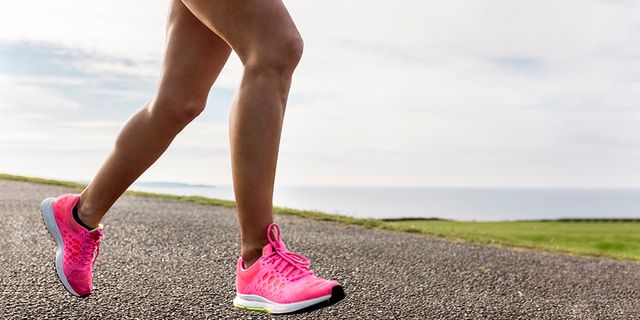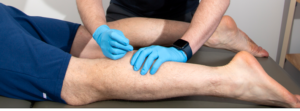Since beginning our running-specific physio sessions in our clinic, one question keeps coming up: ‘is running bad for my knees?’. And its not just in our clinic we hear this; one study found that when asked, 13% of the general public thought running was bad for your knees, 26% were unsure, and 48% thought if you had osteoarthritis in your knees that running would make it worse. Further to this, approximately 50% of injuries runners suffer from are knee injuries.
Going back to the question, the answer to this is a little nuanced, but essentially no! There is a large amount of research that has been completed in recent years looking at the health of runners knees, and there are overwhelming positive findings regarding the health of our knees in response to running. To learn more, read on!
Here’s the thing; our bodies have the tremendous capacity to adapt to the activity it is completing. This can be not only shown by a runner being able to increase the distance and time they can run, but also by studying what is happening inside their body as a result of running.
One large system review and meta-analysis looked at the prevalence of hip and/or knee osteoarthritis (OA) in 114,829 runners and non-runners. It may surprise you, but it was found that recreational runners (i.e. those who are not professional runners) had a 3.5% incidence of knee osteoarthritis, versus the 10.23% osteoarthritis found in non-runners.
What this shows is that running recreationally actually lowers the risk of developing knee and/or hip osteoarthritis, therefore lowering the likelihood of recreational runners developing joint degeneration and the complications that come from that. Interestingly, it suggests that those individuals who do not run are more likely to develop knee and/or hip osteoarthritis then those that run at a recreational level.
This takes us back to the ability for your body to adapt to the activity it is completing. With recreational running, the increased loading through your knee joints has been shown to increase the thickness of the cartilage in the knee, and in some cases increase the glycosaminoglycan content of the cartilage (which is what helps make the cartilage itself), both of which will protect against knee osteoarthritis. Another study found that running for 30 minutes reduced inflammatory chemicals in the knee, whereas there was no difference in those who do not run. These inflammatory chemicals can lead to knee pain, decreased function and degeneration of knee cartilage, so it’s very encouraging that running helps lessen them.
Overall, what these studies show is that running has an important protective function when managing knee osteoarthritis, and that running can help stop knee osteoarthritis developing. This isn’t to say that you can’t develop aches and pains when running, but often they are a result of the runner increasing their running distance too quickly, leading to a variety of musculoskeletal complications, which our physios and athletic therapist are able to help you with.
Hopefully this article can help relieve some worries you may have had about knee pain and running, but if you are looking to have your running injury assessed and treated by one of our specifically trained therapists, you can call our clinic at 250-493-1152 to book an assessment, or book online here to reserve your running-specific physiotherapy appointment!







